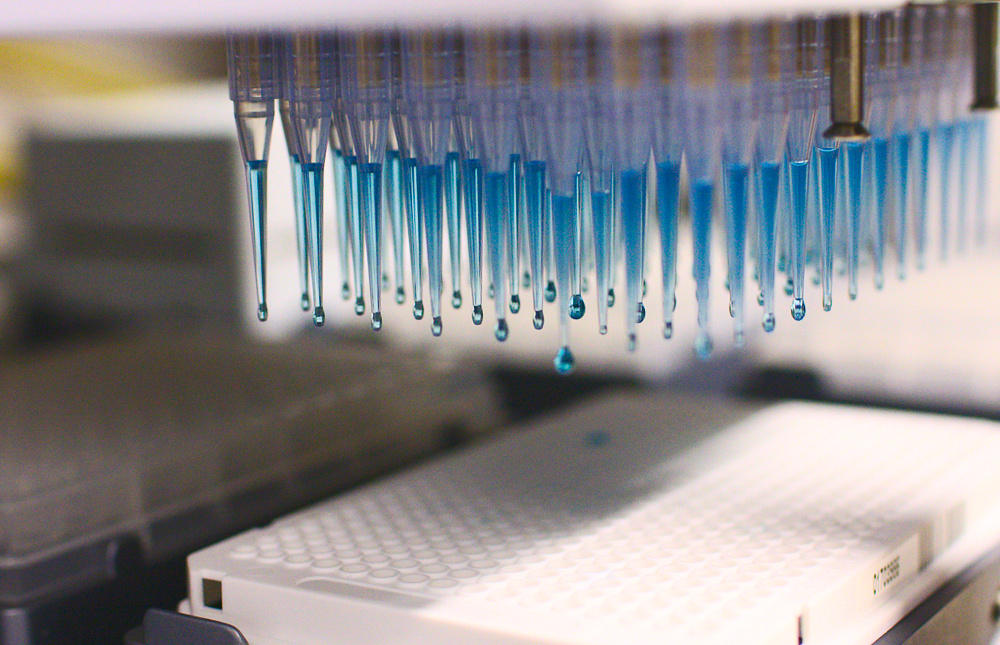High-throughput screening
High-throughput screening (HTS) is a method widely used in drug development, where liquid-handling robotics is combined with computational tools to test large number of samples for specific properties. We use HTS to find inhibitors and pharmacological chaperones for our proteins.

Main content
The HTS assay we use is a thermal shift assay called differential scanning fluorimetry (DSF) or Thermofluor. The protein of interest is heated up in the presence of a fluorescent probe (Sypro Orange or similar) which reports exposed hydrophobic areas. Thus, you get increased fluorescence when the protein unfolds, which can be used to determine the melting point. If a compound binds to the native state of a protein, there will be a shift in the melting point.
The Department of Biomedicine has a liquid handling robot from Agilent which we use to prepare the samples. The samples are prepared in 384-well RT-PCR plates, and standard RT-PCR instrument from Roche is used to record the unfolding curves of 384 samples simultaneously.
We have successfully used the screening for several projects:
- Ianire Martin, Jarl Underhaug, Garbiñe Celaya, Fernando Moro, Knut Teigen, Aurora Martinez, and Arturo Muga. Screening and evaluation of small organic molecules as clpb inhibitors and potential antimicrobials. Journal of Medicinal Chemistry, , 2013.
- Ana Jorge-Finnigan, Sandra Brasil, Jarl Underhaug, Pedro Ruíz-Sala, Begoña Merinero, Ruma Banerjee, Lourdes R. Desviat, Magdalena Ugarte, Aurora Martinez, and Belén Pérez. Pharmacological chaperones as a potential therapeutic option in methylmalonic aciduria cblb type. Hum Mol Genet, 22:3680-3689, 2013.
- Pey, A,L., Ying, M., Cremades, N., Velazquez-Campoy, A., Scherer, T., Thöny, B., Sancho, J. and Martinez, A. (2008) Pharmacological chaperones as therapeutic agents to treat phenylketonuria. J. Clin. Invest. 118, 2858-2867.
